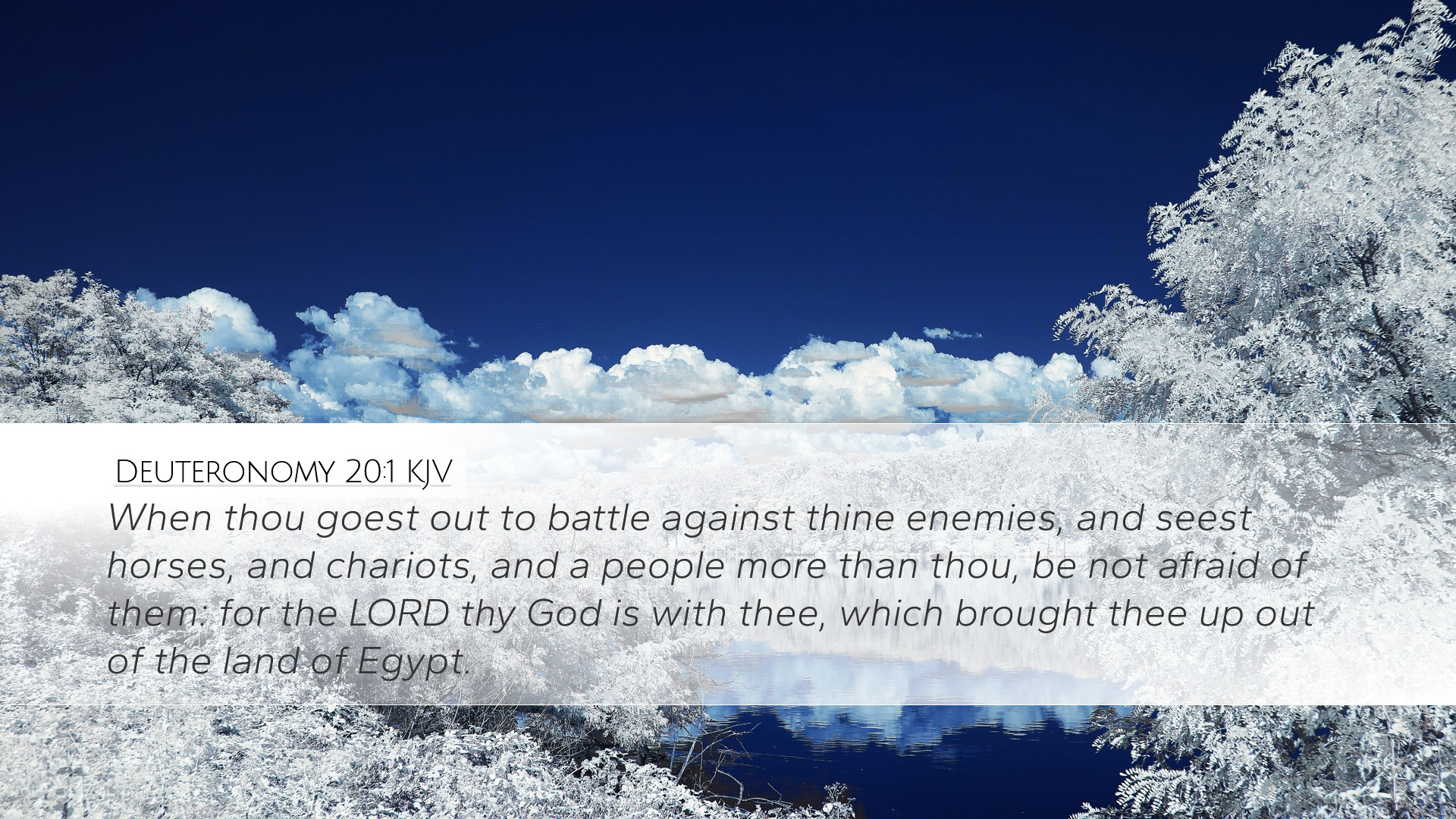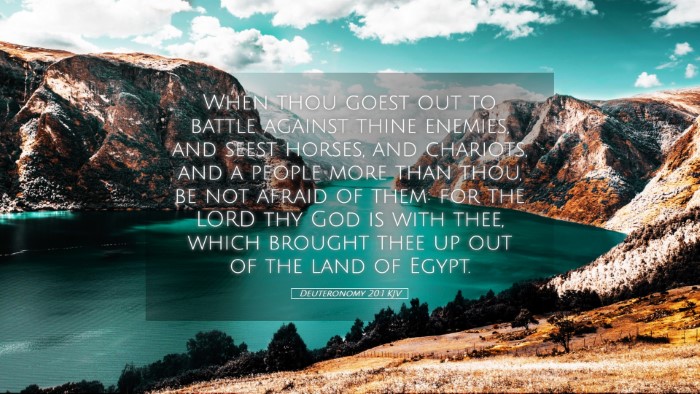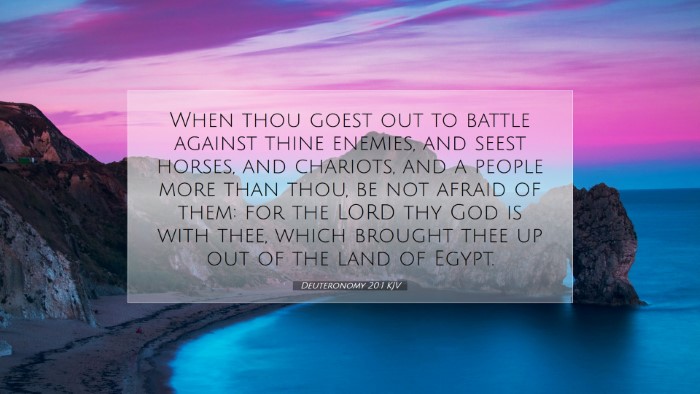Deuteronomy 20:1 Commentary
Bible Verse: "When you go out to battle against your enemies, and see horses and chariots, and a people more than you, be not afraid of them: for the LORD your God is with you, which brought you up out of the land of Egypt."
Introduction
The verse of Deuteronomy 20:1 presents a significant theological and practical perspective on warfare, faith, and divine assistance. In the context of ancient Israel, this verse reflects God's assurance to His people when facing overwhelming adversaries. The commentaries offer intricate insights into the implications of this text both in its historical context and its applications to the life of believers today.
Insights from Public Domain Commentaries
Matthew Henry's Commentary
Matthew Henry emphasizes the importance of relying on God during times of conflict and adversity. In his view, the phrase “be not afraid of them” encapsulates the essence of faith in God's providence. Henry urges readers to consider the spiritual realities of warfare, asserting that despite the daunting presence of enemies (symbolized by horses and chariots), God's presence is what ultimately assures victory.
- Human Weakness: Henry notes the tendency of humans to be fearful when confronted with physical might. He emphasizes that faith in God's past deliverance is crucial, as it empowers believers to face their fears.
- God’s Promises: The reference to God's deliverance from Egypt serves as a powerful reminder of His faithfulness. This historical act of salvation underscores the continual support God provides to His people.
Albert Barnes' Notes on the Bible
Albert Barnes offers a detailed analysis of the sociopolitical context of Israel's battles. He explains that the mention of "horses and chariots" signifies the military might of foreign nations, which would naturally provoke fear among Israel's warriors. However, Barnes stresses the importance of understanding the supremacy of spiritual rather than physical power.
- Divine Assurance: Barnes highlights that the essence of the command not to fear is rooted in the promise of God's presence. He points out that this assurance is pivotal not only for the Israelites but is a universal principle applicable to any believer facing trials.
- Historical Context: The invocation of the Exodus narrative reminds the Israelites of their identity as God's chosen people. For Barnes, this historical memory serves to bolster their courage and confidence in God's intervention in battle.
Adam Clarke's Commentary
Adam Clarke provides a thought-provoking exposition, focusing on the spiritual applications of the text. He expresses that spiritual warfare transcends physical battles, emphasizing the necessity of spiritual preparation and reliance on God.
- Spiritual Warfare: Clarke elucidates that the “battle” may not solely refer to physical warfare but also to the struggles against sin and oppression. He further discusses how this verse can apply to believers today as they confront spiritual challenges.
- Encouragement in Faith: Clarke emphasizes that faith in God's presence is a profound source of strength. He encourages believers to remember their deliverance from sin, akin to the Israelites' deliverance from Egypt, as a means to cultivate spiritual courage.
Theological Implications
This verse is rich with theological implications regarding faith, divine presence, and the nature of God's assistance in challenging times. The reassurances provided also reflect broader biblical themes regarding God's character and His commitment to His people.
Faith and Fear
One of the central themes of Deuteronomy 20:1 is the juxtaposition of fear and faith. The command not to fear in the face of daunting challenges serves as a powerful reminder that faith is not the absence of fear but the presence of trust in God despite fear.
Celebration of God’s Faithfulness
The verse also invites reflection on the nature of God’s faithfulness. The historical context wherein God freed Israel from Egypt acts as a template for understanding His ongoing relationship with His people. This historical narrative becomes a point of reference for faith in present and future struggles.
Application to Spiritual Life
For modern readers—pastors, students, and theologians—the applications of this text move beyond the military context into the realm of spiritual growth and maturity. It calls upon believers to trust in God's presence in their own spiritual battles, be they personal struggles, communal conflicts, or societal challenges.
Conclusion
In summary, Deuteronomy 20:1 serves as a poignant reminder of God's provision and faithfulness in the face of overwhelming odds. The insights from Matthew Henry, Albert Barnes, and Adam Clarke collectively reinforce the understanding that the fears we face can produce spiritual growth when we recognize God’s unwavering presence alongside us. As believers confront their battles, may they draw strength from the promise that the Lord who brought them from the land of Egypt continues to walk with them today.


